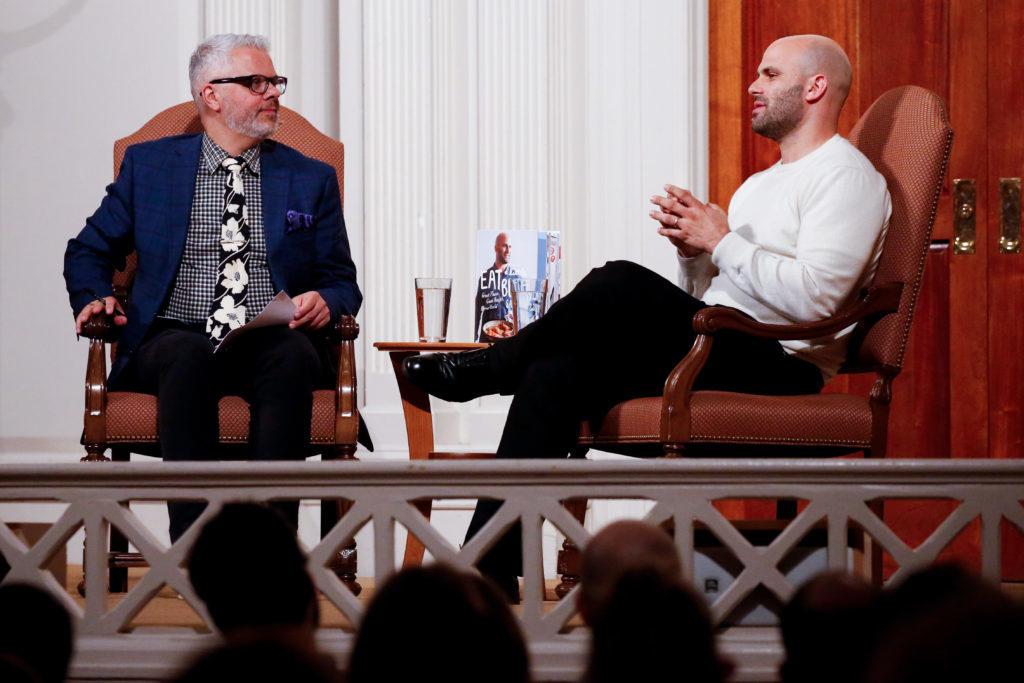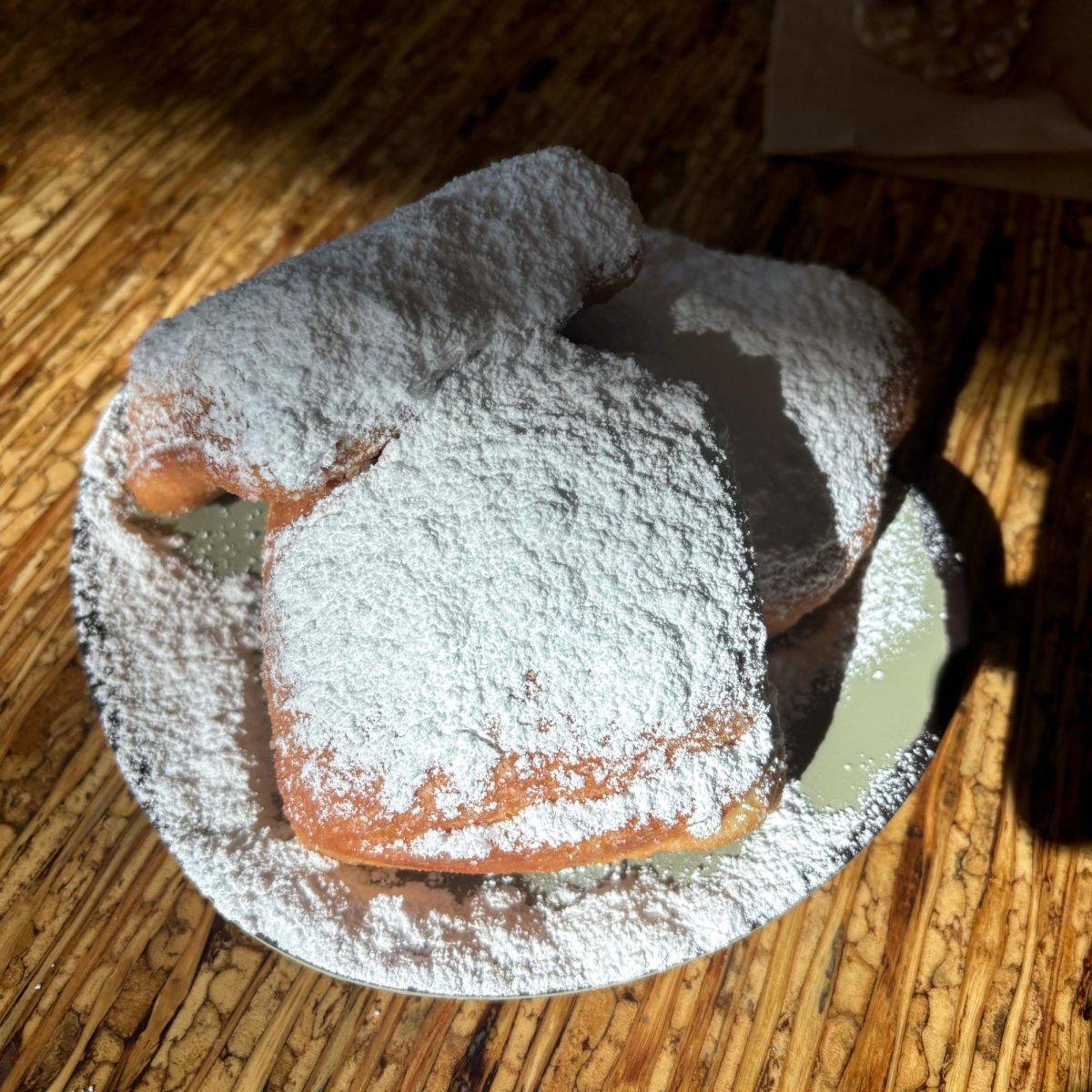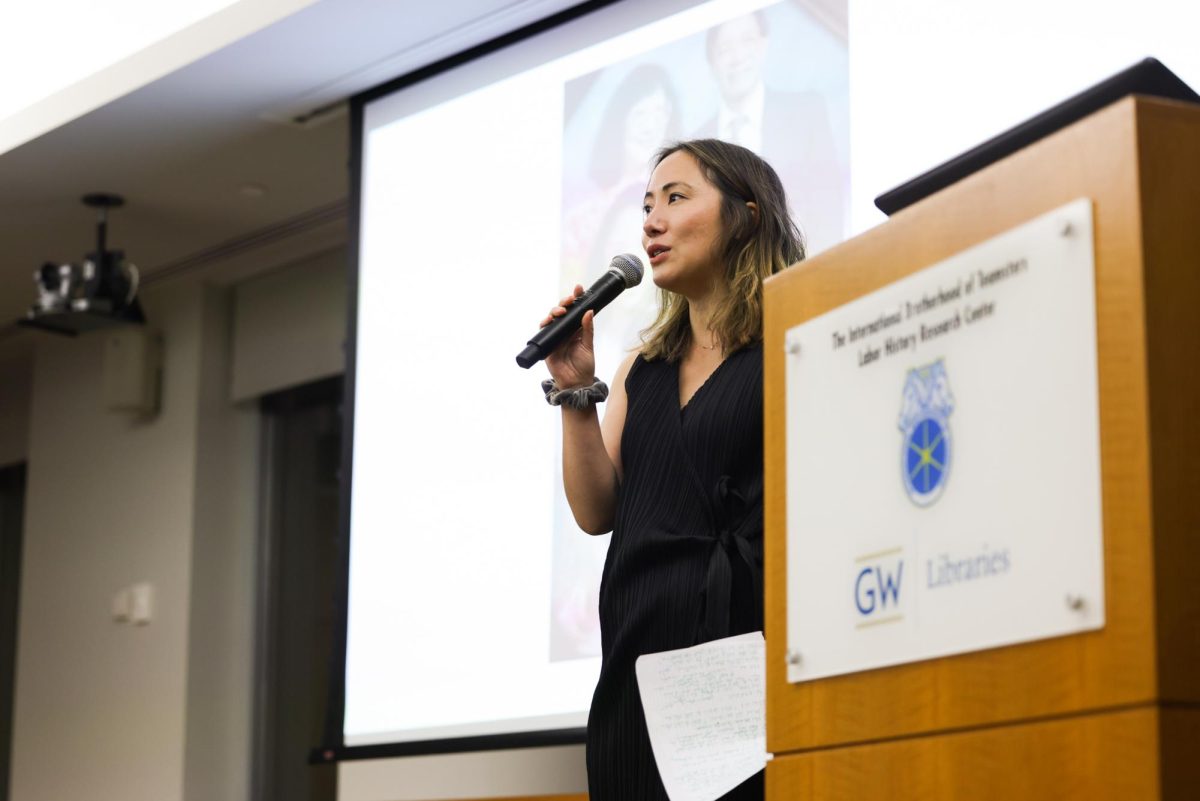Former White House chef and food policy advisor Sam Kass spoke about making healthy eating choices at the Sixth & I Historic Synagogue Tuesday.
During his five-year White House tenure, Kass served as executive director of Michelle Obama’s Get Moving campaign and cooked countless meals for former President Barack Obama and his family. The chef also spearheaded the first White House vegetable garden in several decades and was closely linked to some of the Obama administration’s nutrition initiatives.
In a conversation with Joe Yonan, food and dining editor at the Washington Post, Kass also discussed the release of his new cookbook, “Eat a Little Better: Great Flavor, Good Health, Better World,” which was released earlier this month.
If you missed it, here are three takeaways from the event:
1. Famous presidential meals
Before entering the White House, Kass expected the kitchen to be spacious, but it was smaller than the stage he spoke on at the event, he said.
While Kass was tight-lipped on the details of state dinners, he said it was rewarding to cook in the White House kitchen for many people week after week. Cooking for the family on the night of Obama’s inauguration was “the craziest day,” he said. As presidential administrations switched over, furniture was being swapped in front of him as he tried to cook.
“So it’s just chaos, and I’m like, ‘Can someone tell me where the fridge is?’” he said.
On the family’s first night in the White House, Kass said he made roasted chicken with barbecue sauce and brown rice – a dish he would commonly serve throughout his stint in the White House.
He said the former president liked his “lucky pasta,” a penne dish with chicken and pesto cooked in the galley kitchen on Air Force One during Obama’s reelection campaign in 2012. The chef cooked this dish on the way to a debate and Obama later credited his success to the pasta, Kass said.
2. Crafting a menu fit for the family
Before arriving in the District, Kass lived in Chicago where he cooked for the Obama family. He said he got ideas for many of his go-to dishes from seeing the family’s eating habits back home firsthand.
He said the dishes needed to be easy because the daughters would run through the kitchen, grab whatever was on the counter for a snack and skip along.
Kass once made pea pasta – topped with fresh peas, cheese and lemon zest – that was well received by former First Lady Michelle Obama, but her two daughters quietly suffered through the meal, he said.
“The girls were trying to be polite,” Kass said. “But they were like, ‘Who is this and what is that?’”
3. Nutrition secrets from a White House expert
Kass said as he was writing his cookbook, he was told his title, “Eat a Little Better,” was not quite aspirational enough. But Kass said he kept it because a very small percentage of strict diets actually work and people should instead focus on developing strategies to incrementally eat healthier.
Cooking at home one more night each week and eating less red meat are quick ways to improve eating habits, Kass said.
He added that avoiding dessert is another easy way to cut 500 calories, and that he is not known to cook dessert. When it comes to stocking your house with sweets, Kass said it is okay to have chips and cookies in the house, but people must be cautious because unhealthy food is tempting.
“We’re in this daily battle with ourselves in our own homes because you buy all this food, you come home and think that willpower will somehow overcome what’s around us, and that’s just not how it works,” Kass said.




